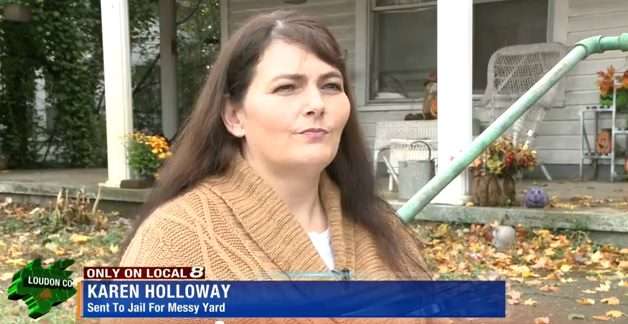Mow Your Yard or Go to Jail


One of the few positive things to be said about city code enforcement officers is that they rarely shoot dogs during the performance of their duties and they don't carry flash-bang grenades. Cities claim they serve public safety by enforcing a million property regulations, but really they often end up harassing poor people with constant demands and threats of fines for poorly maintained homes and yards. In my time, I've encountered any number of leaders of relatively poor cities who were certain that they could draw in big development projects and turn things around if only people's homes looked better, while in the meantime the city streets and infrastructure crumbled into dust. Residents, annoyed by the guy down the street with the car on blocks in front of his house, often support code enforcement anyway.
During one dry summer, I knew of a desert city out in California threatening code enforcement fines for properties that didn't maintain yards because they created fire risks. Then they had a wildfire threatening a neighborhood that originated from exactly the kind of unmaintained property the city worried about. Except it turned out the dangerous property was owned by the city itself.
Code enforcement harassment took a strange turn out in Lenoir City, Tennessee (population: 8,800. Median household income: $28,000). A mother in the small town, Karen Holloway, was sent to jail after being cited for failing to maintain her lawn. As reported by WVLT in Knoxville, Tennessee:
Holloway, who has two kids still at home, says she'll be the first to admit this yard needed some attention. But she feels the city has gone too far by imposing jail time.
"[The bushes and trees] were overgrown. But that's certainly not a criminal offense," she said.
She was shocked at a hearing last week, when Judge Terry Vann handed down a five-day jail sentence.
"It's not right," she said. "Why would you put me in jail with child molesters, and people who've done real crimes, because I haven't maintained my yard."
She says she was never read her rights nor told she could have a lawyer present.
The judge eventually reduced her sentence to six hours but refused her request for community service. According to Holloway, Vann said he knew this wasn't a criminal case but sentenced her to jail anyway. And he set a follow-up hearing for November, where she could face even more penalties if he's not happy with her yard.
WVLT was unable to reach either the judge or the town's chief of police to get any answers. Out of curiosity, I looked up Lenoir City's municipal code (pdf) online. It's almost 300 pages, but I got lucky scrolling through and found the property maintenance regulations beginning on page 135. Here's what it describes as the penalty for having an overgrown or trashed yard:
The penalty for violating this section shall be a fine up to and including fifty dollars ($50.00) and costs for each offense and/or the judge of the municipal court may punish a violation in the same manner as prescribed by any other city ordinance (Tennessee Code Annotated, § 6-54-306). Each day during which a violation continues to exist following the initial citation shall be considered a separate offense.
Well, that's an easily abusable citation system, isn't it? (And likely extremely common.) The basic "penalty clause" of the municipal code declares that violations are civil offenses unless stated otherwise, with maximum fines of $500 and "hard labor" should the offender be unable to pay. It doesn't seem to authorize any sort of jail time for these violations, but admittedly, I'm not a lawyer and there may be some sort of loophole I'm missing.
(Hat tip to Felix Finch)
